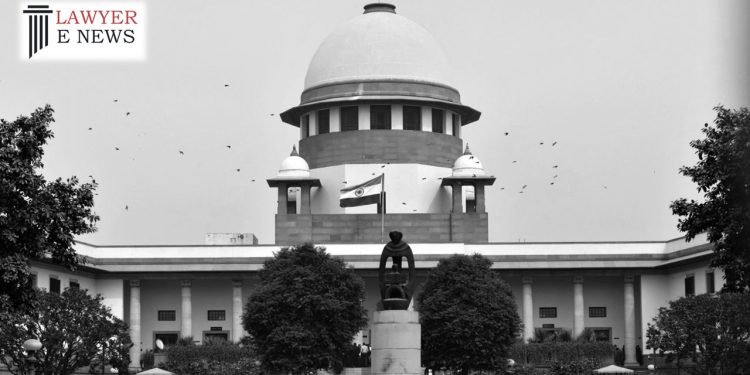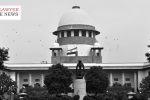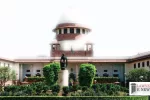ACCUSED RELEASED ON DEFAULT BAIL U/S 167(2) CR.P.C. CAN BE CANCELLED ON STRONG GROUNDS: SUPREME COURT

In a significant ruling, the Supreme Court clarified the interpretation of bail granted on default under Section 167(2) of the Code of Criminal Procedure (Cr.P.C.) and paved the way for the cancellation of such bail on merits. The bench, comprising Justices M.R. Shah and C.T. Ravikumar, emphasized that bail granted on default does not assume the same character as bail granted on merits under Sections 437(1) and (2) or Section 439(1) of the Cr.P.C.
Supreme court observed, “The release of the accused on default bail under Section 167(2) Cr.P.C. is not on merits, but on the failure of the investigating agency in completing the investigation and filing the chargesheet within the stipulated time prescribed therein.” It further clarified that every person released on bail under Section 167(2) of the Cr.P.C. is deemed to be released under Chapter XXXIII for procedural purposes only, and the bail order cannot be cancelled based solely on the filing of the chargesheet.
However, the court emphasized that once a chargesheet is filed and a strong case is made out from its contents, bail granted on default can be cancelled on merits. The court highlighted the need for special reasons and strong grounds to establish the commission of a non-bailable offense from the chargesheet. It referred to Sections 437(5) and 439(2) of the Cr.P.C. as the relevant provisions for considering the cancellation of bail on merits.
The ruling struck a balance between protecting personal liberty and serving the interests of justice. It recognized that denying the courts the power to examine the merits of a case after an accused is released on default bail could lead to a situation where illegality and dishonesty are rewarded. The court held that the administration of justice required the courts to have the power to cancel bail and evaluate the gravity of the offense committed by the accused.
Consequently, the Supreme Court set aside the lower court’s decision dismissing the application for cancellation of bail filed by the Central Bureau of Investigation (C.B.I.) under Section 439(2) of the Cr.P.C. The case was remitted to the High Court of Telangana at Hyderabad for fresh consideration of the application on merits.
The judgment referred to several relevant legal provisions, including Section 167(2) of the Cr.P.C., as well as Sections 437(1), 437(2), 439(1), 437(5), and 439(2) of the Cr.P.C. It also relied on previous cases such as Aslam Babalal Desai v. State of Maharashtra, Raghubir Singh v. State of Bihar, and Rajnikant Jivanlal Patel v. Intelligence Officer, NCB, New Delhi.
This ruling by the Supreme Court provides clarity on the bail process and ensures that bail granted on default is subject to cancellation on merits, based on strong grounds established from the chargesheet. It sets a precedent for considering the interests of justice while balancing the rights of the accused and the need for a fair trial.
Date of Decision: January 16, 2023
The State Through Central Bureau of Investigation vs Gangi Reddy @ Yerra Gangi Reddy






